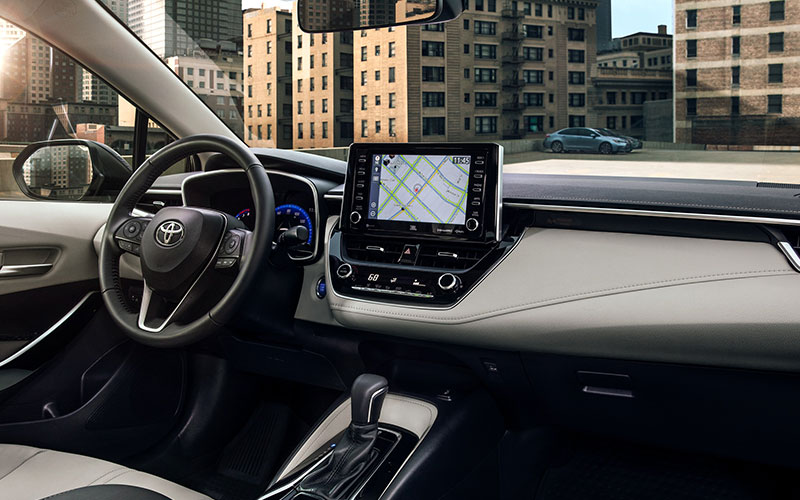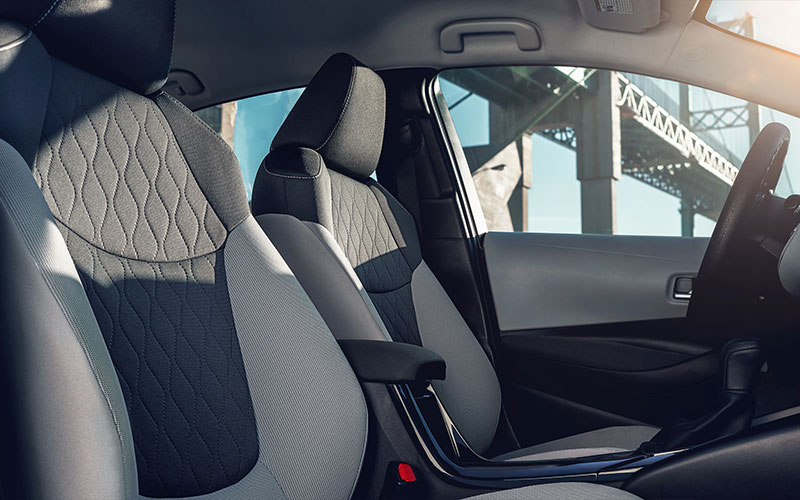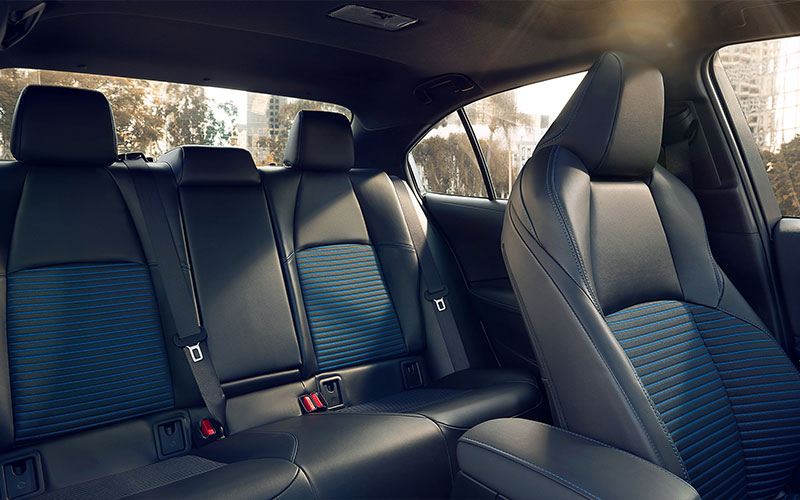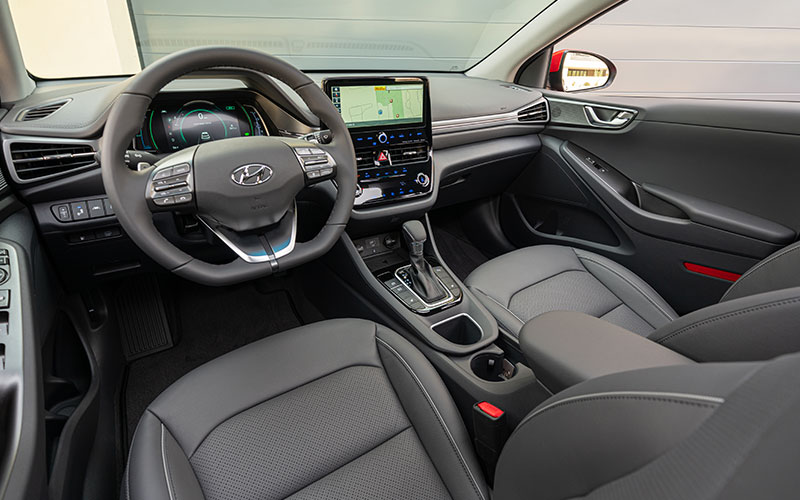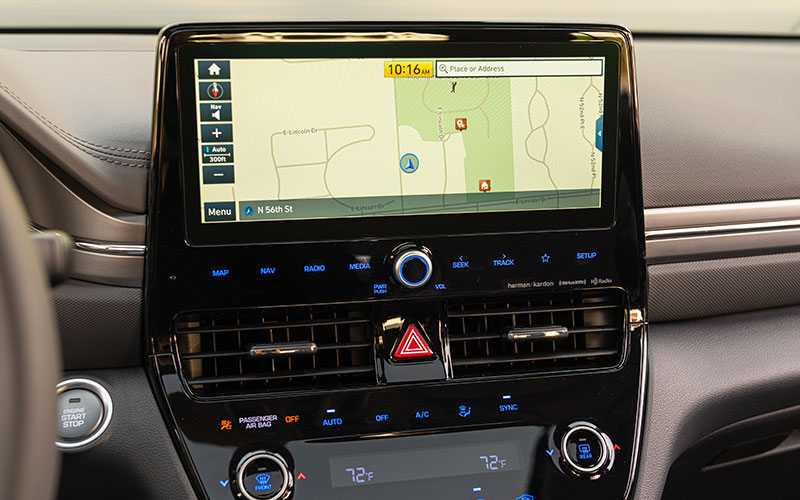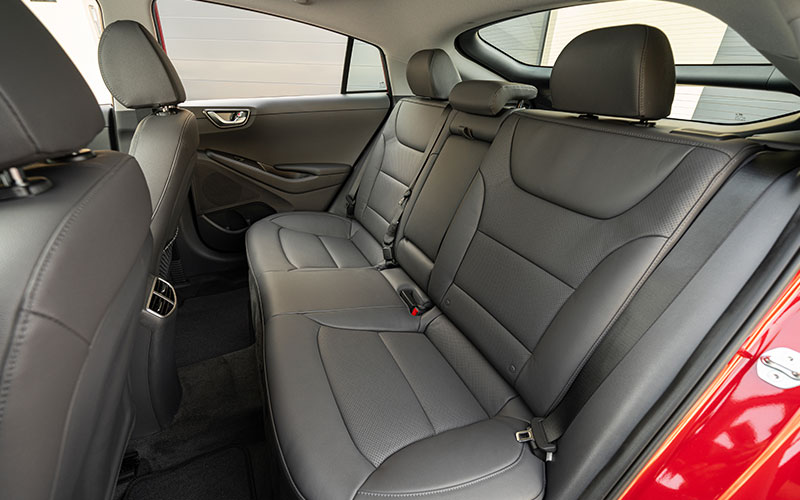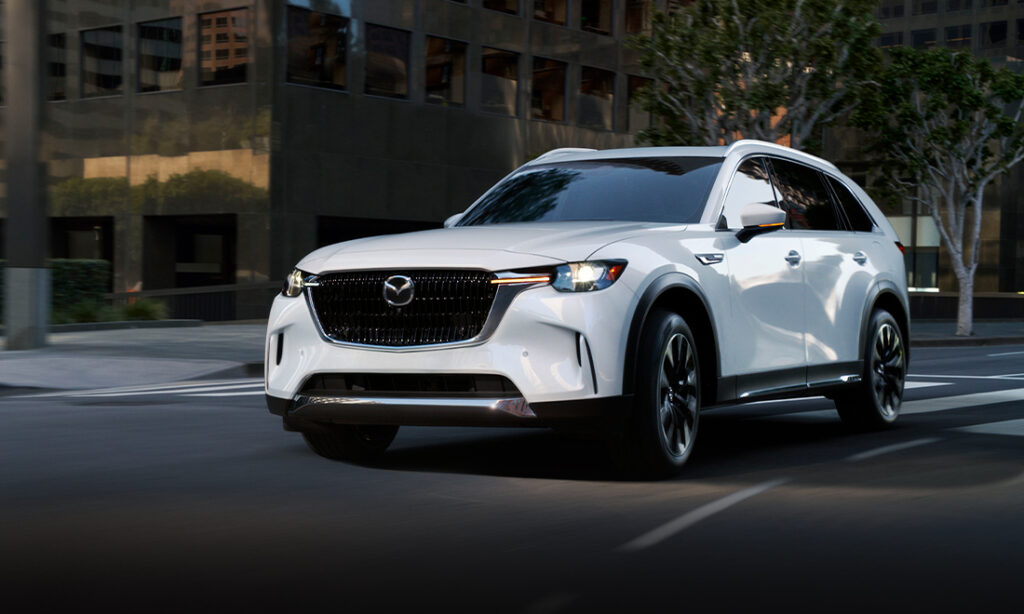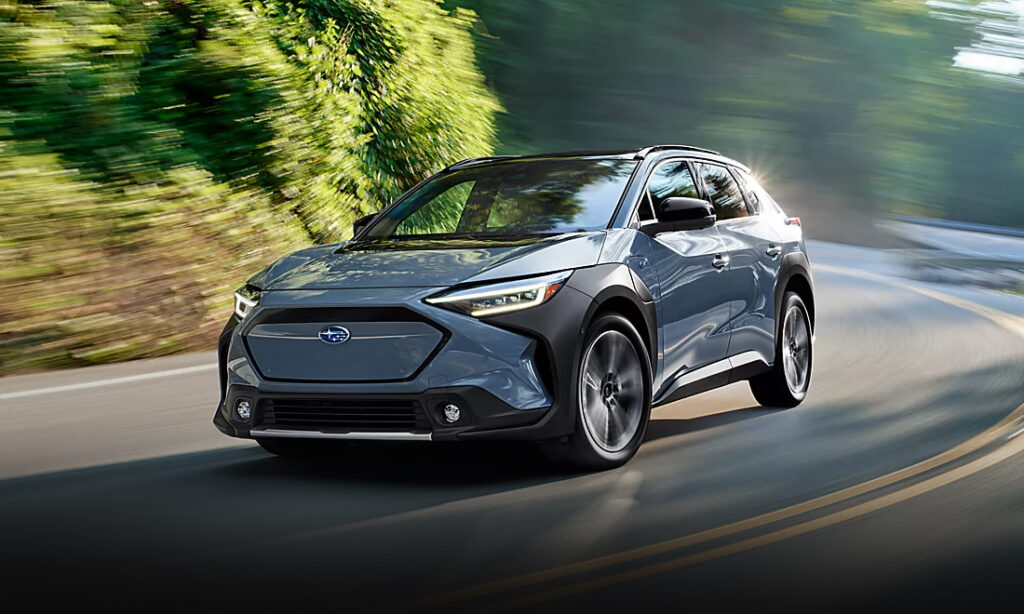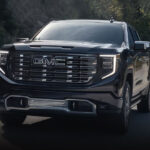We match the 2021 Toyota Corolla hybrid against the 2021 Hyundai Ioniq to find which is the better bargain hybrid.
Hyper Efficiency

Hybrid cars have come a long way in the twenty years since the debut of the Toyota Prius. Where once the Prius could make exclusive claim to unmatched fuel efficiency, today nearly every manufacturer has multiple hybrids to choose from across their respective lineups.
For this comparison we chose Toyota’s hybrid version of their Corolla versus Hyundai’s current Ioniq. Though it’s a new-ish nameplate, the Ioniq looks to be of major importance for Hyundai’s push into further electrifying it’s fleet, with plans for additional full-electric vehicles like the Ioniq 5 SUV coming down the pike. The current Ioniq sits right in line with the Corolla as a small, economical, and highly efficient hybrid.
Specs
Toyota Corolla Hybrid

The Toyota Corolla hybrid is powered by a 1.8L four-cylinder engine paired with two electric motors. All told, these produce 121 horsepower and comes paired to a CVT. The Corolla hybrid is front-wheel drive only. Fuel efficiency is impressive at 53 city and 52 highway mpg. Cargo in the traditional sedan is a respectable 13.1 cu. ft.
Hyundai Ioniq
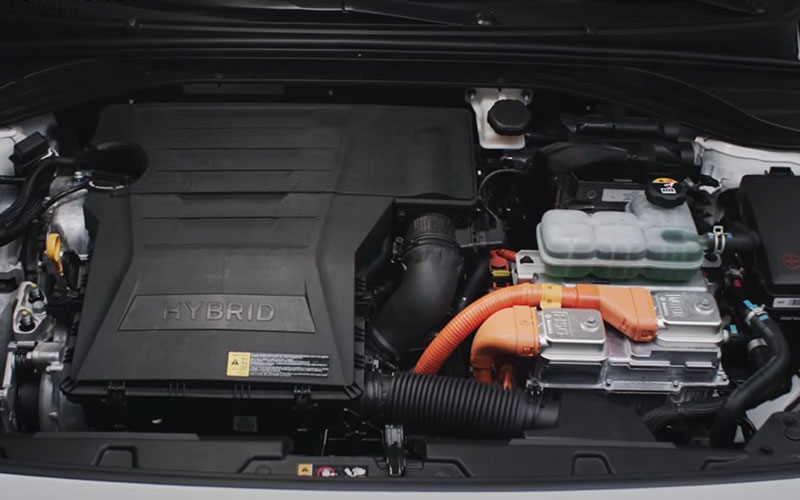
The Hyundai Ioniq offers three different powertrains. First is the traditional hybrid featuring a 1.6L four-cylinder engine working in tandem with a single electric motor. The second is also a plug-in hybrid option with the same powertrain. Both are paired with a six-speed dual clutch automatic. The traditional hybrid is rated to a phenomenal 58 city and 60 highway mpg. The 2020 plug-in hybrid Ioniq (2021 numbers aren’t yet in from the EPA) is rated to 119 MPGe and offers 29 miles of electric only range.
Because the full electric version of the Ioniq is only available in 13 states currently, we’ll largely leave that by the wayside. Suffice to say the 134 horsepower Ioniq EV, with its 38.3kWh battery, gets 145 city and 121 highway MPGe.
Thanks to the Ioniq’s hatchback design it offers 26.5 cu. ft. or cargo room. The larger battery packs of the plug-in and full EV versions eat into cargo slightly, cutting it to 23 cu. ft.
Driving & Performance
Toyota Corolla Hybrid
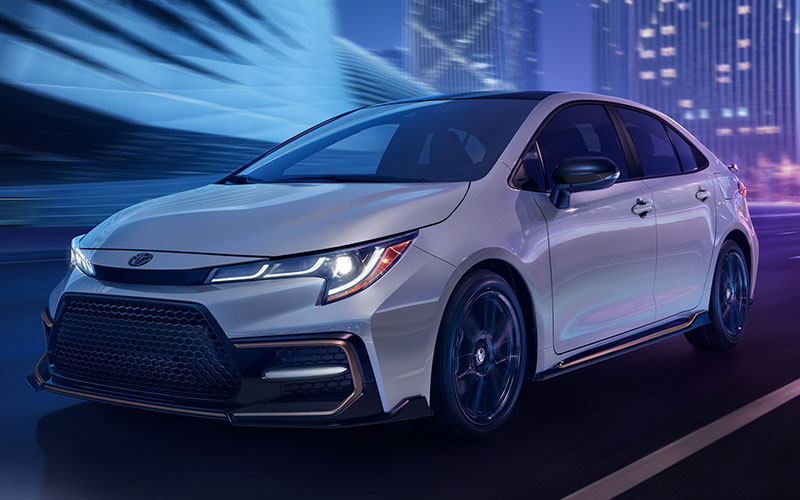
While the Corolla hybrid is by no means fast, its throttle response is good from a dead stop. Passing, however, is best accomplished with planning and care. Steering is sharp and responsive but lacks feedback. Handling is good and the suspension is tuned for a placid and comfortable ride. The regenerative brakes are properly calibrated to avoid the typical “grabbiness” that technology often produces.
Hyundai Ioniq

The Ioniq’s acceleration isn’t anything to write home about either. But we did appreciate the inclusion of the dual-clutch automatic over the more typical CVT. That the Ioniq gets class leading fuel efficiency regardless raises questions about the necessity of the CVT trade-off we’ve been sold by manufacturers. Like the Corolla the Ioniq is good off the line but can struggle in highway passing situations. Though it’s not especially swift, the Ioniq does handle well, with precise steering and a suspension that soaks up bumps ably.
Comfort & Interior
Toyota Corolla Hybrid
Like most Toyota’s, the Corolla hybrid’s interior is a good balance of comfort and practicality. Materials are nice, with most of the hard plastics saved for lower door paneling and the like. The overall design is reserved. There’s a clear emphasis on daily livability with plenty of buttons and knobs wisely positioned throughout. The front seats are comfortable and fairly roomy. While the rear seats are decently cushioned, the space, especially head room is a little cramped. Rear seat legroom is a decent 34.8 inches.
Hyundai Ioniq
The Hyundai Ioniq follows the cues of the rest of the Hyundai lineup with a smartly styled interior space. Material are of a decent quality here too, Unlike the Corolla, which only comes in the LE trim, the Ioniq benefits from its full range of trims scaling from the economical to the impressively refined.
In keeping with the eco-friendly vibes, Hyundai used various environmentally friendly materials in the Ioniq’s interior including sugar cane and volcanic rock. The rear seat in the Ioniq is more generous than the Corolla at 37.5 inches of legroom.
Features & Trims
Toyota Corolla Hybrid LE – $23,400
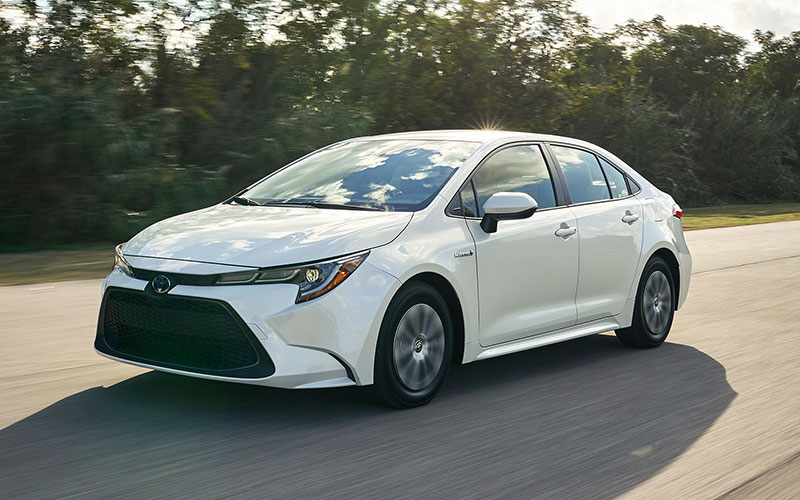
As we mentioned above, the Corolla hybrid only comes in the LE trim level. Thankfully, the LE is decently equipped with a generous package of standard safety features. These include automatic high beams, traffic sign recognition, adaptive cruise control, rearview camera, automatic emergency braking, pedestrian and cyclist detection, forward collision warning, and lane keep and lane trace assist. There are also options for blind spot detection and rear cross traffic alerts.
Other features include keyless entry, cloth upholstery, Apple CarPlay, Android Auto, Amazon Alexa, WiFi hot spot, satellite radio, Bluetooth, 8-inch infotainment screen, 7-inch digital gauge cluster, and automatic climate control.
Hyundai Ioniq
Though not as generous as the Corolla, the Ioniq does feature a good amount of standard safety features. These include driver attention monitoring, lane keep assist, rearview camera, automatic emergency braking, automatic high beams, and forward collision warning. Optional safety features include blind spot detection, rear cross traffic alerts, adaptive cruise, rear cross traffic alerts, and lane follow assist.
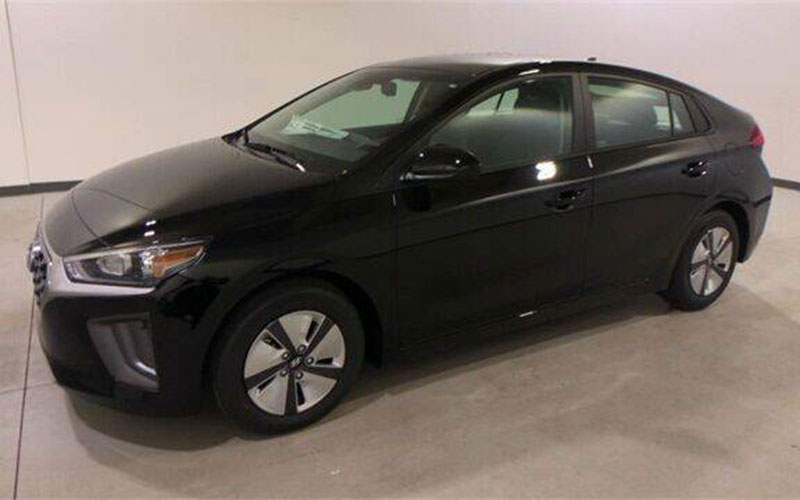
Blue – $23,200
8-inch infotainment screen, dual-zone climate control, Apple CarPlay and Android Auto, 6-way power adjustable driver’s seat, cloth upholstery, and 6-speaker stereo.
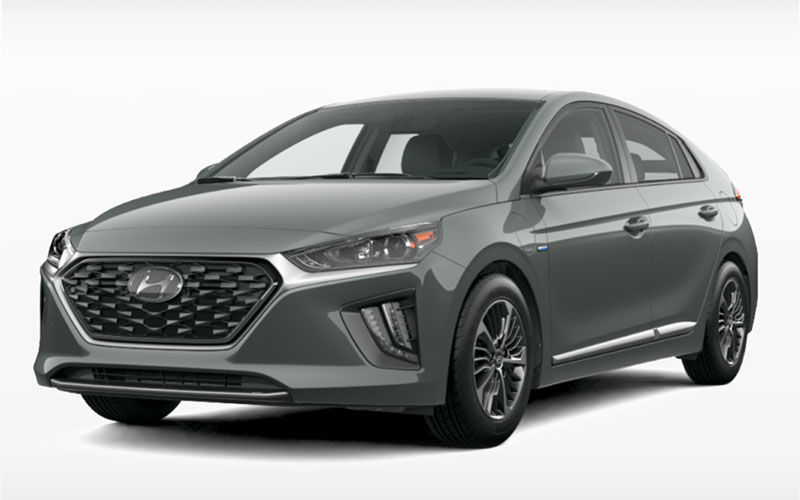
SE – $25,150/$26,500 (plug-in hybrid)
Paddle shifters, heated front seats, and satellite radio. The hybrid gets blind spot detection. The plug-in hybrid drops the blind spot detection but adds automatic stop-start adaptive cruise control and lane follow assist.
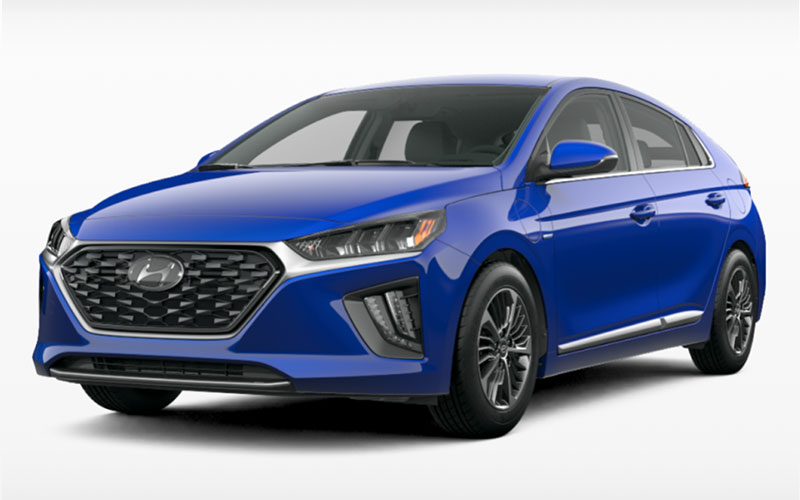
SEL – $28,400/$29,500
Adds wireless charging, sunroof (hybrid), 10-way power driver’s seat (plug-in hybrid).
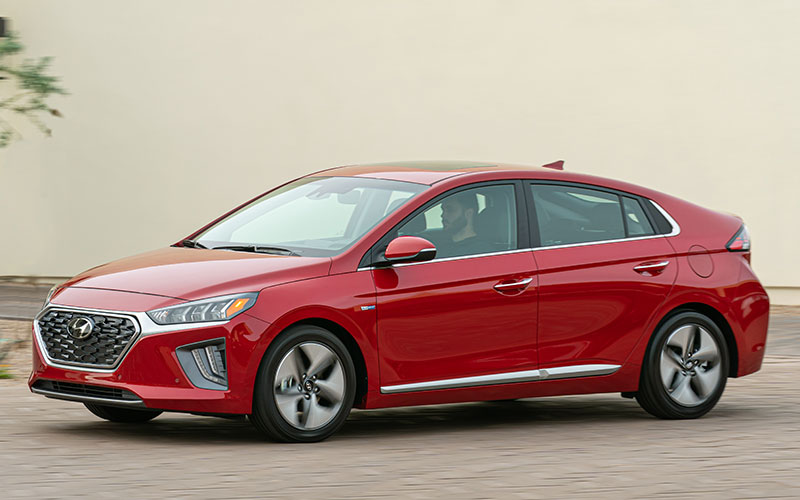
Limited – $31,200/$32,900
Navigation, 10.25-inch infotainment touchscreen, 8-speaker Harmon Kardan stereo, front and rear parking sensors, leather seats, and highway drive assist.
Conveyance Appliances
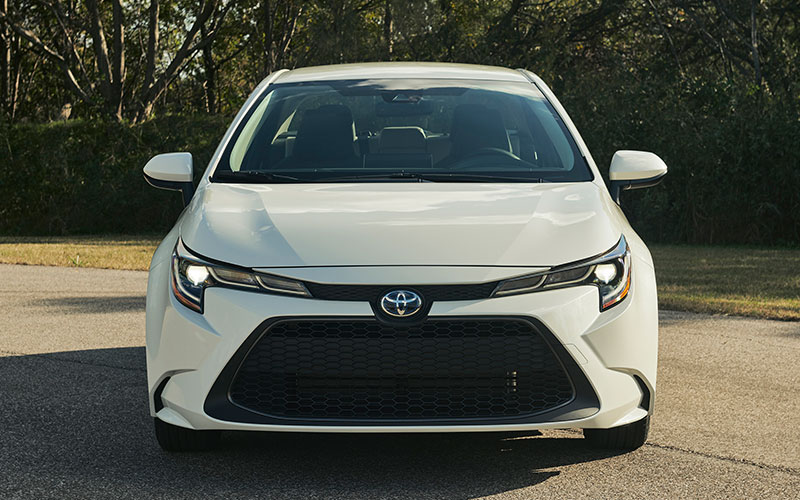
You don’t consider buying the Toyota Corolla hybrid or the Hyundai Ioniq because you’re looking for driving excitement. Instead, these hybrids are worthy of your attention based on their outstanding ability to shuttle you and yours from A to B as efficiently and comfortable as possible, and all within a reasonable budget.
The Corolla delivers on both fronts with great fuel economy, a comfortable ride, and a whole host of standard safety options. Unfortunatley, it suffers from a lack of choice. In love with the Corolla but want a hybrid powertrain, well the Corolla LE is what you get and all you get.

The Ioniq, while similar on an experiential level is most tangible ways, driving, build quality, and the like, it offers up to three powertrain options (depending on where you live) and four trim levels. The Corolla hybrid LE at $23,400 is probably the better deal compared to the base Ioniq Blue (at $23,200) given it’s more generous list of standard safety features. But, if you’re considering spending more than that, or really what to take advantage of the plug-in or EV options, it’s the Hyundai Ioniq all day long.


